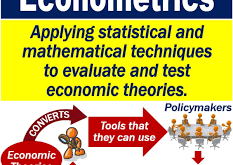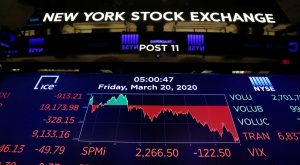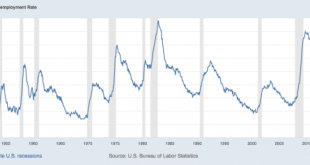The news is as bad as it can be. Our most dependable indicator, people dying from Corona, suggest an exponential rate of growth of over 10%. Per day. Actually: 14%. In a little over 2 weeks, 20.000 people will die. At least. Per day. If we do nothing. The news is as good as it can be. High biotech companies are developing fast track tests at an unbelievable rate while the government offices which (rightly) have to approve these are working around the clock to do this. Korea will soon...
Read More »Econometric testing
from Lars Syll Debating econometrics and its short-comings yours truly often gets the response from econometricians that “ok, maybe econometrics isn’t perfect, but you have to admit that it is a great technique for empirical testing of economic hypotheses.” But is econometrics — really — such a great testing instrument? Econometrics is supposed to be able to test economic theories but to serve as a testing device you have to make many assumptions, many of which themselves cannot be tested...
Read More »Country by country coronavirus case trajectories graph
«Η πανδημία του κοροναϊου και η υγιειονομική και οικονομική κρίση», Στ. Μαυρουδέας
Η πανδημία του κοροναϊου και η υγιειονομική και οικονομική κρίση Σταύρος Δ. Μαυρουδέας Καθηγητής Πολιτικής Οικονομίας Πάντειο Πανεπιστήμιο Τμήμα Κοινωνικής Πολιτικής e-mail: [email protected] blog: https://stavrosmavroudeas.wordpress.com facebook: https://www.facebook.com/stavros.mavroudeas twitter: @StavMavroudeas Αθήνα, 24/3/2020 Διπλή κρίση: υγειονομική και οικονομική Σήμερα η ανθρωπότητα βρίσκεται στη δίνη της πανδημίας του κοροναϊού με συνέπεια μία τεράστια υγειονομική...
Read More »Open thread March 24, 2020
The 75 per cent solution: tourism (repost from 2007)
We won’t be travelling anywhere much by air for some time to come, so this is a good time to reconsider our whole approach. I thought I’d start by digging out this post from 2007. A lot of discussion of climate change is based on the implicit or explicit premise that, since we use energy in everything we do, and most energy is derived from carbon-based fuels, large reductions in CO2 emissions will require radical changes in the way we live. Some people welcome this prospect, but most...
Read More »Unemployment pandemic
from David Ruccio Capitalist crises are neither predictable nor do they stem from a single cause. Instead, at least as I see it, the possibility of a crisis is always there but the causes and triggers are all historical and therefore multiple and varied. Sometimes, crises in capitalism stem from difficulties in extracting more surplus from workers and a resulting fall in corporate profit rates; at other times, they are caused by the bursting of speculative bubbles and a run on funds...
Read More »Differences in theoretical methodology: equilibrium vs. complexity vision
from David Colander and RWER no. 91 The two visions draw lessons from theory differently, and are associated with quite different research programs, especially as they relate to policy. The equilibrium vision sees formal theory as providing a necessary blueprint for policy. Franklin Fisher (2011) nicely captures this view. He writes, “It is not an overstatement to say that they (the general equilibrium welfare theorems) are the underpinnings of Western capitalism… So elegant and powerful...
Read More »Coronavirus links
From Adam Levitin, a summary of the Senate economic rescue package. Recommended. Why can’t the news media provide information like this? Don’t answer that. Via Cowen, a discussion of bankruptcy. Some kind of bankruptcy reform is quite possibly the best way to preserve established relationships, but apparently not under active consideration. Some economic charts from WAPO. FWIW, I think the Goldman prediction of a sharp bounceback in the third quarter...
Read More » Heterodox
Heterodox



